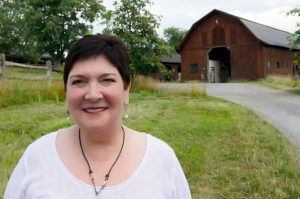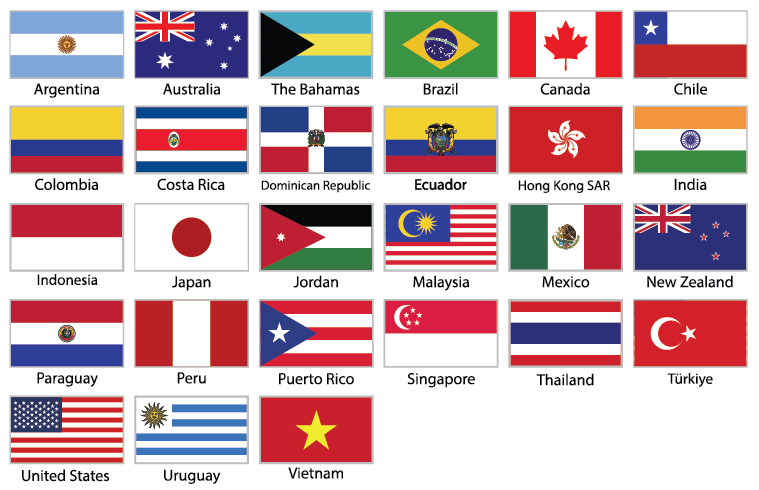TIME
 Adele Douglass built a non-profit that protects millions of farm animals and gives farmers a new marketing niche.
Adele Douglass built a non-profit that protects millions of farm animals and gives farmers a new marketing niche.
After a three-decade career in Washington devoted to animal welfare issues, Adele Douglass thought she knew a lot about how bad their mistreatment could get. Still, she was shocked when she began to look closely at the conditions of farm animals in the U.S.
Douglass decided the best way to improve the conditions of livestock was to push for change herself. So in 2003, at age 57, she quit her job as a non-profit executive for an animal rights association and launched her own organization, Humane Farm Animal Care. “The more I knew, the more appalled I got, and the more I wanted to do something myself,” says Douglass, now 67. “Legislation was not going to solve the problem. It took 100 years for the Humane Slaughter Act to be passed.”
Douglass figured out a way to engage farmers and consumers on the issue—by addressing their growing concerns over eating meat from animals being fed antibiotics. She developed Certified Humane, which is the first certification in the U.S. that guarantees farm animals are treated humanely from birth to slaughter. To get this certification, farmers must allow animals to engage in natural behaviors, provide appropriate space for roaming, and food free of antibiotics or hormones. Farmers who are Certified Humane can market to natural food shoppers and get higher prices for their products, Douglass says.
Humanely raised food appeals to American families of all income levels. “Young mothers want to feed their families good food. Poor people don’t want to feed their families junk” says Douglass.” Following humane practices also improves the environment, since fewer animals raised on more space creates less pollution.
To fund the organization, Douglass cashed in her $80,000 401(k) account. Her daughter, who had encouraged her to make the move, gave her $10,000 and worked at the organization during its first few years. Douglass also received grants from the American Society for the Prevention of Cruelty to Animals and The Humane Society. In the first year of operation in 2004, 143,000 animals were raised under the organization’s standards.
Today 87 million animals are in the program, and the non-profit has three full-time employees and two part-timers. Fees for certification and annual inspections cover about 30% of the organization’s costs—the rest comes from donations and grants.
Douglass shares this advice for others hoping to launch a second act career:
Make a plan before you exit. Douglass spent years researching the issue before quitting her job. She was able to get off the ground in just one year because she modeled the certification program after an existing similar program in the U.K. called Freedom Food.
Leverage your contacts. Douglass has a deep list of connections, from animal scientists and USDA officials to fundraisers and academics, as well as contacts in the animal rights movement and veterinary profession. “I had the contacts, knowledge and experience which gave me confidence I could do this on my own,” says Douglass.
Cut personal expenses. Though Douglass’ salary isn’t much less than what she earned in her previous career, her compensation is a lot more volatile. She has willingly taken pay cuts in recent years. Douglass says she hasn’t had to change her lifestyle much. But she reduced her biggest expense—her home—by downsizing to a smaller place, which made it easier to adjust.
At 67, Douglass doesn’t envision retiring. Now living alone, with three adult children and five grandchildren, she says her family is one of her greatest joys. But her work remains an enormously satisfying part of her life too. “Sure, there are days when I am tired and frustrated. But I am doing something that benefits people, animals and the environment. I feel really good about that,” says Douglass.
Adele Douglass is a 2007 winner of The Purpose Prize, a program operated by Encore.org, a non-profit organization that recognizes social entrepreneurs over 60 who are launching second acts for the greater good.

3 secrets to launching a successful second act career
Posted: October 23, 2014 by Adele Douglass
TIME
After a three-decade career in Washington devoted to animal welfare issues, Adele Douglass thought she knew a lot about how bad their mistreatment could get. Still, she was shocked when she began to look closely at the conditions of farm animals in the U.S.
Douglass decided the best way to improve the conditions of livestock was to push for change herself. So in 2003, at age 57, she quit her job as a non-profit executive for an animal rights association and launched her own organization, Humane Farm Animal Care. “The more I knew, the more appalled I got, and the more I wanted to do something myself,” says Douglass, now 67. “Legislation was not going to solve the problem. It took 100 years for the Humane Slaughter Act to be passed.”
Douglass figured out a way to engage farmers and consumers on the issue—by addressing their growing concerns over eating meat from animals being fed antibiotics. She developed Certified Humane, which is the first certification in the U.S. that guarantees farm animals are treated humanely from birth to slaughter. To get this certification, farmers must allow animals to engage in natural behaviors, provide appropriate space for roaming, and food free of antibiotics or hormones. Farmers who are Certified Humane can market to natural food shoppers and get higher prices for their products, Douglass says.
Humanely raised food appeals to American families of all income levels. “Young mothers want to feed their families good food. Poor people don’t want to feed their families junk” says Douglass.” Following humane practices also improves the environment, since fewer animals raised on more space creates less pollution.
To fund the organization, Douglass cashed in her $80,000 401(k) account. Her daughter, who had encouraged her to make the move, gave her $10,000 and worked at the organization during its first few years. Douglass also received grants from the American Society for the Prevention of Cruelty to Animals and The Humane Society. In the first year of operation in 2004, 143,000 animals were raised under the organization’s standards.
Today 87 million animals are in the program, and the non-profit has three full-time employees and two part-timers. Fees for certification and annual inspections cover about 30% of the organization’s costs—the rest comes from donations and grants.
Douglass shares this advice for others hoping to launch a second act career:
Make a plan before you exit. Douglass spent years researching the issue before quitting her job. She was able to get off the ground in just one year because she modeled the certification program after an existing similar program in the U.K. called Freedom Food.
Leverage your contacts. Douglass has a deep list of connections, from animal scientists and USDA officials to fundraisers and academics, as well as contacts in the animal rights movement and veterinary profession. “I had the contacts, knowledge and experience which gave me confidence I could do this on my own,” says Douglass.
Cut personal expenses. Though Douglass’ salary isn’t much less than what she earned in her previous career, her compensation is a lot more volatile. She has willingly taken pay cuts in recent years. Douglass says she hasn’t had to change her lifestyle much. But she reduced her biggest expense—her home—by downsizing to a smaller place, which made it easier to adjust.
At 67, Douglass doesn’t envision retiring. Now living alone, with three adult children and five grandchildren, she says her family is one of her greatest joys. But her work remains an enormously satisfying part of her life too. “Sure, there are days when I am tired and frustrated. But I am doing something that benefits people, animals and the environment. I feel really good about that,” says Douglass.
Adele Douglass is a 2007 winner of The Purpose Prize, a program operated by Encore.org, a non-profit organization that recognizes social entrepreneurs over 60 who are launching second acts for the greater good.
Category: news